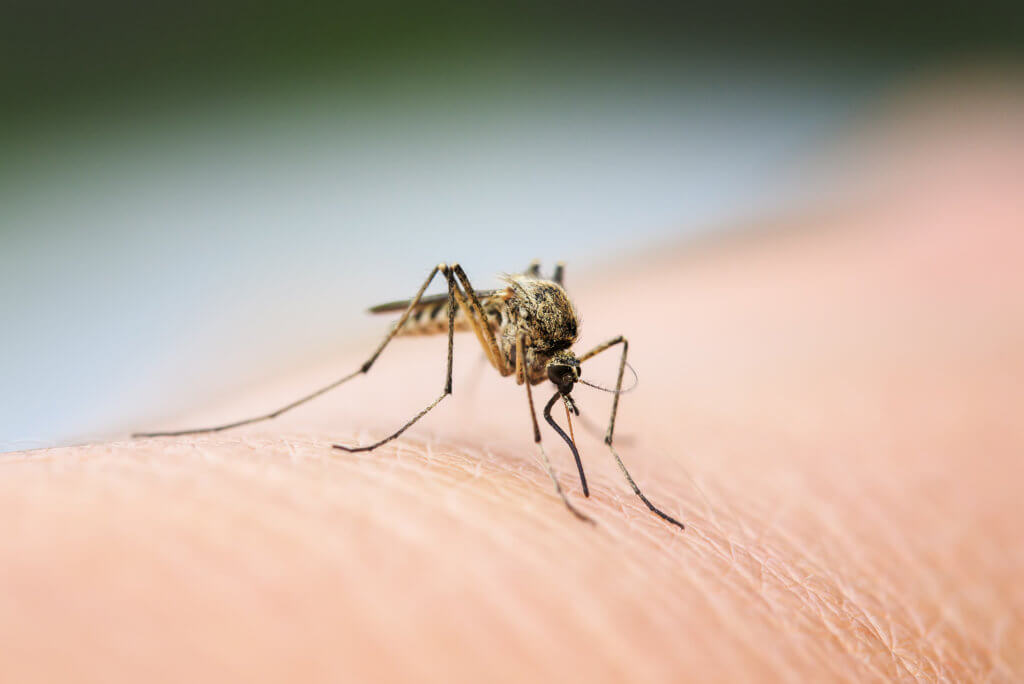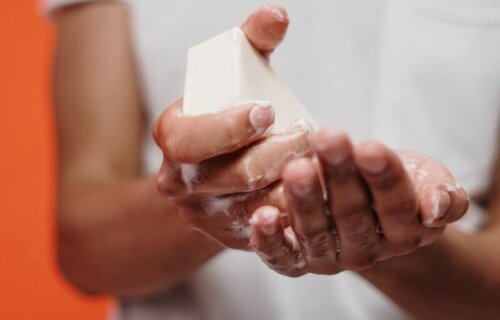BLACKSBURG, Va. — Plenty of people have a favorite brand of soap. Interestingly, it turns out that mosquitoes do too! A new study finds that your choice of soap could be attracting more mosquitoes than others — no matter how clean your skin is.
Prior studies show mosquitoes are drawn towards or repelled by specific scents, especially once they’ve detected the smell of human skin. Researchers from Virginia Tech say pesky insects like mosquitoes are attracted to individuals who use soaps such as Dove or Simple Truth. Conversely, they tend to be repelled by coconut-scented brands, including Native. Choosing the right soap could help people evade these pests, which can cause itchy bites and can transmit malaria and other deadly diseases.
“It’s remarkable that the same individual can become more attractive to mosquitoes with one soap, while becoming repellent to mosquitoes with another,” says senior author and neuroethologist Clément Vinauger.
A series of experiments found that washing with Dove and Simple Truth increased the attractiveness of some volunteers to mosquitoes, while Native soap tended to deter them. This summer, avoiding these bloodsuckers may depend on choosing the right soap and appropriate clothing to cover your skin, according to the team. Various theories exist as to why some people are mosquito magnets while others remain bite-free.
“Everybody smells different, even after the application of soap. Factors like your physiological status, lifestyle, diet, and places you frequent all affect the way you smell,” explains co-author and biologist Chloé Lahondère in a media release. “Soaps drastically change the way we smell, not only by adding chemicals but also by causing variations in the emission of compounds that we naturally produce.”

The experiments demonstrated that soap-washing influenced mosquitoes’ preferences, depending on the types of soap used. The odors emitted by four human volunteers were analyzed both before and an hour after they had washed with Dial, Dove, Native, and Simple Truth. The team also examined the scent profiles of the soaps themselves.
Each participant had a unique odor, some of which attracted mosquitoes more than others. Washing with soap significantly altered these odors, and the effect was not just due to the addition of floral fragrances.
Study authors used female Aedes aegypti mosquitoes during their experiments, which are the only sex of the species that feed on blood. Their bites can transmit diseases such as dengue, yellow fever, chikungunya, and Zika.
The experiments also considered the effects of exhaled carbon dioxide (CO2), a crucial cue for mosquitoes, by conducting tests on fabric that had absorbed the participants’ odors. Mosquitoes can detect CO2, which humans and other animals exhale. The presence of CO2 boosts the activity of female mosquitoes, prompting them to explore their surroundings in search of a host.
“What really matters to the mosquito is not the most abundant chemical, but the specific associations and combinations of chemicals, not only from the soap, but also from our personal body odors,” Vinauger explains.
Mosquito repellents in soap don’t do the job
The study author notes that despite all four tested soaps containing limonene, a known mosquito repellent, three out of the four soaps increased mosquito attraction. Understanding what attracts these pests could lead to the development of better repellents, traps, and other deterrents.
“We know that the ratios of chemicals are extremely important for determining whether mosquitoes are attracted or repelled. Changing the ratio of the same exact chemicals can result in attraction, indifference, or repulsion,” Lahondère adds.
The study, published in iScience, identified four chemicals associated with mosquito attraction and three associated with repulsion, including a coconut scent in American Bourbon and a floral compound used to treat scabies and lice. These compounds were combined to create and test attractive and repellent odor blends, which had a significant impact on mosquito preference.
“With these mixtures, we eliminated all the noise in the signal by only including those chemicals that the statistics indicated were important for attraction or repulsion. I would choose a coconut-scented soap if I wanted to reduce mosquito attraction,” Vinauger elaborates.
Vinauger plans to further expand the research, aiming to find general patterns by testing more soap varieties and a larger number of people. The team is also interested in exploring how soap impacts mosquito preference over extended periods.
“We’re very curious to examine the duration of this effect. For example, if you take a shower in the morning, does it still affect mosquito attraction in the evening?” Vinauger concludes.
You might also be interested in:
- Best Mosquito Repellent: Top 5 Products Most Recommended By Experts
- Mosquitoes are NOT repelled by vitamins or other oral supplements you might take
- Common chemical in shampoo and soap sends women’s risk of diabetes skyrocketing
South West News Service writer Mark Waghorn contributed to this report.


Should test people with diabetes also
People with high sugar levels
Get more bites to from mosquitoes